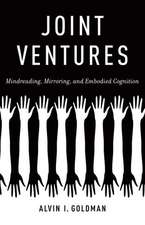The Right to Narcissism – A Case for an Im–possible Self–love
Autor Pleshette Dearmitten Limba Engleză Hardback – 10 noi 2013
Preț: 529.29 lei
Preț vechi: 653.45 lei
-19% Nou
Puncte Express: 794
Preț estimativ în valută:
101.29€ • 105.36$ • 83.62£
101.29€ • 105.36$ • 83.62£
Carte tipărită la comandă
Livrare economică 14-28 aprilie
Preluare comenzi: 021 569.72.76
Specificații
ISBN-13: 9780823254439
ISBN-10: 0823254437
Pagini: 208
Dimensiuni: 159 x 235 x 21 mm
Greutate: 0.41 kg
Ediția:New.
Editura: ME – Fordham University Press
ISBN-10: 0823254437
Pagini: 208
Dimensiuni: 159 x 235 x 21 mm
Greutate: 0.41 kg
Ediția:New.
Editura: ME – Fordham University Press
Cuprins
Acknowledgments Introduction: The Right to Narcissism? Part I. Rousseau: The Passions of Narcissus Introduction: Another Morality Tale? 1. Man's Double Birth 2. Regarding Self-Love Anew Part II. Kristeva: The Rebirth of Narcissus Introduction: Self-Love-Beyond Sin, Symptoms, and Sublime Values 3. Reconceiving Freud's Narcissus 4. Transference, or Amorous Dynamics Part III. Derrida: The Mourning of Narcissus Introduction: The Very Concept of Narcissism 5. The Eye of Narcissus 6. The Ear of Echo Afterword: By What Right? Notes Bibliography
Recenzii
"Deftly working at the intersection of philosophy, psychoanalysis, and literature, D'Armitt makes a fascinating case for self-love, or narcissism. With subtle and incisive readings of Rousseau, Kristeva and Derrida, D'Armitt shows the necessity for rethinking narcissism as an ethics of otherness."-Kelly Oliver, Vanderbilt University "Pleshette DeArmitt's gem of a book, The Right to Narcissism, makes a cogent, timely, and well-crafted case in support of reclaiming the concept of narcissism from the pejorative meanings with which it has most commonly been associated for much of the modern era."-Elissa Marder, Emory Univeristy
"Deftly working at the intersection of philosophy, psychoanalysis, and literature, D'Armitt makes a fascinating case for self-love, or narcissism. With subtle and incisive readings of Rousseau, Kristeva and Derrida, D'Armitt shows the necessity for rethinking narcissism as an ethics of otherness."-Kelly Oliver, Vanderbilt University "Pleshette DeArmitt's gem of a book, The Right to Narcissism, makes a cogent, timely, and well-crafted case in support of reclaiming the concept of narcissism from the pejorative meanings with which it has most commonly been associated for much of the modern era."-Elissa Marder, Emory Univeristy
"Deftly working at the intersection of philosophy, psychoanalysis, and literature, D'Armitt makes a fascinating case for self-love, or narcissism. With subtle and incisive readings of Rousseau, Kristeva and Derrida, D'Armitt shows the necessity for rethinking narcissism as an ethics of otherness."-Kelly Oliver, Vanderbilt University "Pleshette DeArmitt's gem of a book, The Right to Narcissism, makes a cogent, timely, and well-crafted case in support of reclaiming the concept of narcissism from the pejorative meanings with which it has most commonly been associated for much of the modern era."-Elissa Marder, Emory Univeristy












